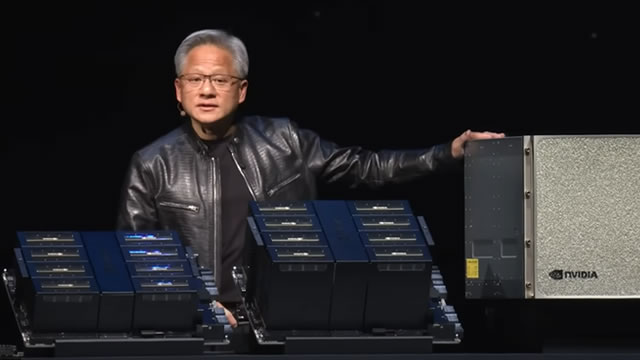Nvidia’s Reign in the AI Server Market: Advanced Hardware and CUDA Ecosystem
Nvidia, a leading technology company, has been maintaining its dominance in the Artificial Intelligence (AI) server market for several reasons. One of the primary reasons is its advanced hardware technology. Nvidia’s Graphics Processing Units (GPUs) have been the go-to choice for AI researchers and developers due to their high computational power and efficiency. The company’s latest GPUs, such as the Nvidia A100, are designed specifically for AI workloads and offer significant improvements in performance and power efficiency.
Another reason for Nvidia’s market dominance is its CUDA ecosystem. CUDA is a parallel computing platform and application programming interface model created by Nvidia. It allows developers to write software that can take advantage of Nvidia GPUs’ parallel processing capabilities. The CUDA ecosystem provides a rich set of libraries, tools, and frameworks that simplify the development of AI applications, making Nvidia a preferred choice for many.
Emerging Competitors: Cerebras and SambaNova
Despite Nvidia’s market dominance, emerging competitors like Cerebras and SambaNova Systems are challenging the status quo. Cerebras’ Wafer-Scale Engine is a custom-designed AI chip that offers significant improvements in performance and power efficiency. SambaNova’s Dataflow Processing Unit (DPU) is another innovative hardware solution that is designed specifically for AI workloads.
These emerging competitors are pushing the boundaries of AI hardware and challenging Nvidia’s market dominance. However, Nvidia’s first-mover advantage, extensive ecosystem, and strong brand recognition give it an edge in the market.
China’s AI Chip Innovation: Huawei’s Ascend 910C and Beyond
China, a global leader in AI and chip production, is another player to watch in the AI server market. Despite export restrictions, Chinese companies are making significant strides in AI chip innovation. Huawei’s Ascend 910C is one such example. This AI chip is designed to offer high performance and power efficiency, making it a viable alternative to Nvidia’s offerings.
China’s Prioritization of AI and Chip Production
China’s prioritization of AI and chip production is a significant factor in its progress in this field. The Chinese government has invested heavily in research and development, with significant resources allocated to AI and chip production. The country’s ambitious “Made in China 2025” initiative aims to make China a global leader in high-tech industries, including AI and semiconductors.
Promising Technologies: Laser-Induced Discharge Plasma Technology and Nanoimprint Lithography
China is also investing in promising technologies like Laser-Induced Discharge Plasma Technology and Nanoimprint Lithography. These technologies have the potential to revolutionize the chip manufacturing process, making it more efficient and cost-effective. If successful, these technologies could give Chinese companies a significant advantage in the global chip market.
Impact on Consumers and the World
The advancements in AI hardware and the increasing competition in the market will have a significant impact on consumers and the world as a whole. Consumers will benefit from more powerful and efficient AI technologies, leading to better products and services. The world will see an increase in the adoption of AI in various industries, leading to improved productivity, efficiency, and innovation.
Conclusion
The AI server market is an exciting space, with innovative companies like Nvidia, Cerebras, SambaNova, and Huawei pushing the boundaries of what’s possible. China’s investment in AI and chip production is another significant factor that will shape the future of the market. Consumers and the world will benefit from these advancements, leading to better products, services, and a more innovative future.
- Nvidia maintains dominance in the AI server market due to advanced hardware and CUDA ecosystem.
- Emerging competitors like Cerebras and SambaNova are challenging Nvidia’s market dominance.
- China is making significant strides in AI chip innovation, despite export restrictions.
- China’s prioritization of AI and chip production is a significant factor in its progress in this field.
- Promising technologies like Laser-Induced Discharge Plasma Technology and Nanoimprint Lithography could revolutionize the chip manufacturing process.
- Advancements in AI hardware and the increasing competition in the market will have a significant impact on consumers and the world as a whole.





